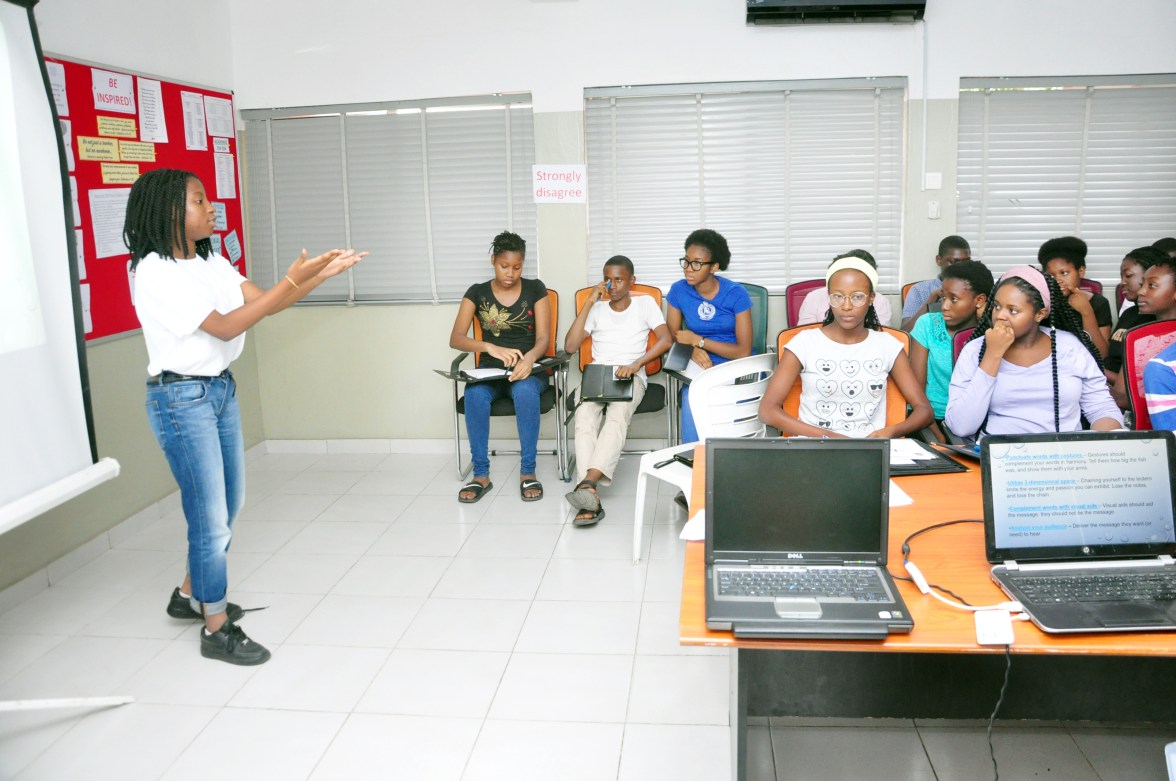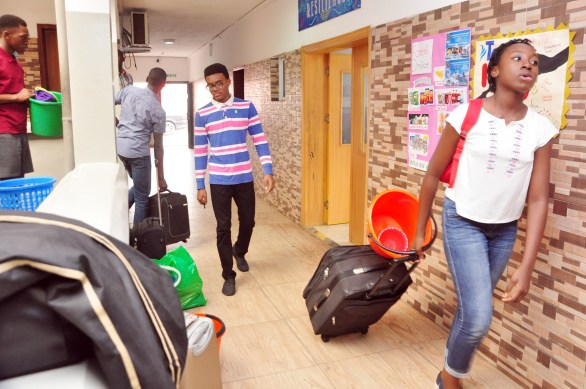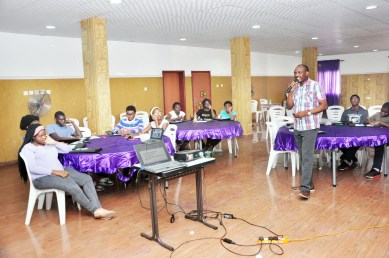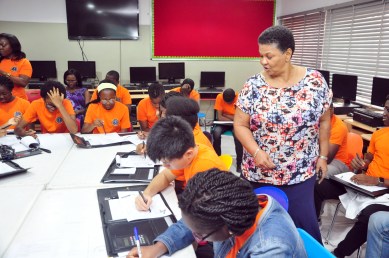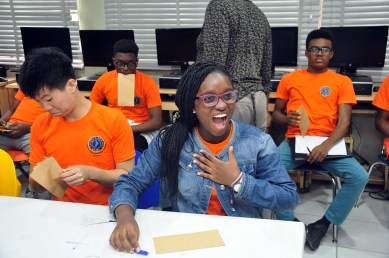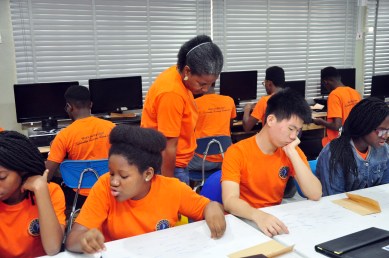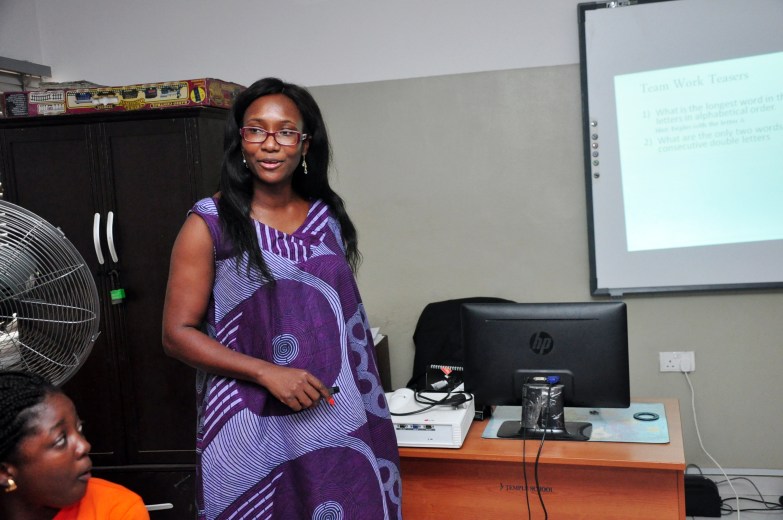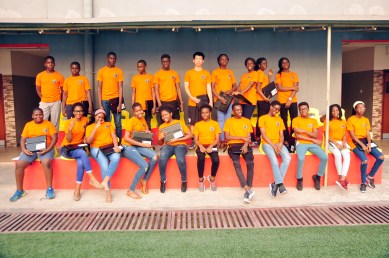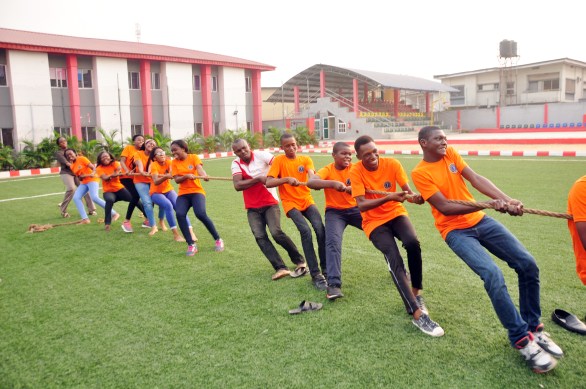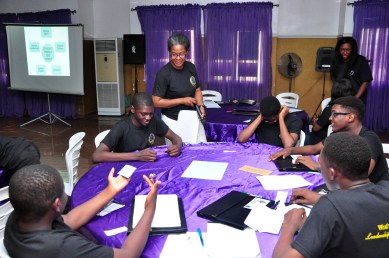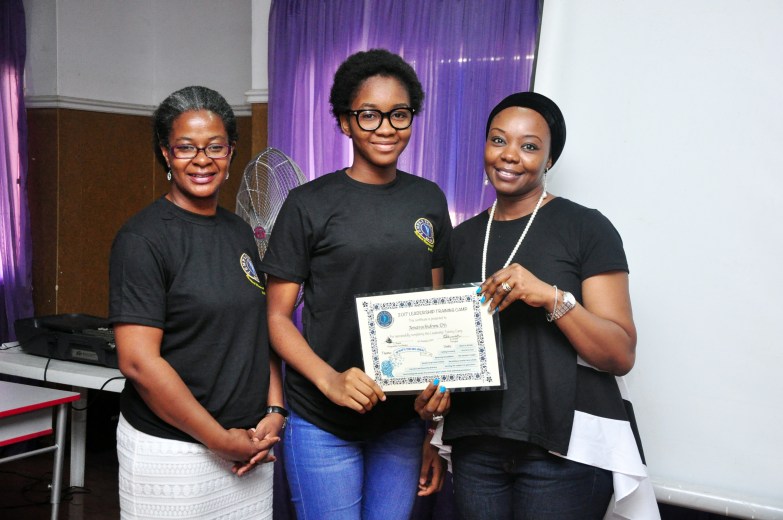“The task of leadership is not to put greatness into people, but to elicit it, for the greatness is there already.” – John Buchan
The very first Student Leadership Training Camp took place between the 4th and the 6th of January 2017. The camp was aimed at preparing the newly inaugurated members of the Student Representative Council for the 2016/2017 academic session. Themed ‘What’s the Big Idea?’, it was a vibrant programme, with four main aims:
- To guide the Student Representatives through an intensive reflective process of their inner strengths and how they can hone in on these and use them in their respective roles;
- To facilitate collaborative brainstorming and planning sessions for the student-led initiatives that arise from the various sessions;
- To help develop the hard and soft leadership skills that will be essential for each of the attending student leaders to be successful in their respective roles;
- To form a robust and close-knit team of student leaders who will be able to bridge any gaps between the student body, the staff and the management.
The camp was well structured and efficiently run. The Prefects found the various sessions practical, informative and enjoyable. The energy and enthusiasm that resonated in the camp from the very first to the last day helped the Prefects come away with a very positive outlook for the future and helped them develop a broad view on different issues. They experienced great sessions on project management, high expectations, public speaking, servant leadership skills, gaining support from peers, and much more. On the final day, they brought everything they had learnt in the camp together, to prepare their roadmap for their tenure, with high targets and checkpoints.
A big well done to the organising committee, led by Mr Ifinedo, Head of Mathematics, for this fantastic programme.
Temple School – educating the whole child
Keynote speech by Dr Asa on the occasion of the Temple Awards ceremony Thursday 6th July 2017
I want to seize this opportunity to congratulate Temple school on another wonderful occasion earmarked to celebrate diligence, effort/hard work and formally reward and recognise success-Well-earned prizes; some for academic excellence, some for amazing progress and some for trying their very best! I must commend Temple for ensuring all aspects of learning is acknowledged. Indeed, every child is being nurtured to exceed potential. Here at Temple, the in-depth understanding of the import of individuality of these children is prime. Some are roses, some daisies, some tulips, etc. but all so beautiful in their own ways and altogether they create the garden called Temple school.
Question: Do we need more smart or good people in our world?
Standing here, from this vantage point, I see unlimited possibilities! Ladies/Gentlemen the world belongs to those who are taught early to believe in the beauty of their dreams whether these be academic, artistic or sporting. These dreams have to be built and nurtured on the core value of hard work and integrity (the key make up of a good person). It was Thomas Edison who said, “We often miss opportunity because it’s dressed in overalls and looks like work.” – Experts now say that teaching kids the value of hard work and determination is more important than building self-esteem, and the skill of perseverance is essential to a child’s social-emotional development.
When it comes to success, working hard is unavoidable. Many look at successful people and think it was luck and talent that got them there. In some cases, maybe, but majority of the time, their success came down to working hard on the right things. Perhaps believing that luck was involved may help some people feel less of a failure but the reality is that without teaching our children the virtue of hard work, our children won’t go far in life. Thomas Jefferson once said, “I am a great believer in luck and I find the harder I work, the more I have of it”. Collen Powell once said- there are no secrets to success.
It is the result of preparation, hard work and learning from failure. They say talent is cheaper than table salt. What separates the talented individual from the successful one is a lot of hard work. There is no shortcut to any place worth going and the difference between ordinary and ‘extraordinary’ is that little “EXTRA”. – extra effort, time, going the extra mile, extra sweat.
But how do we develop in our children, our students, and our family the belief that hard work is essential, especially in a world where things come to us, and our kids, so easy? If Google doesn’t solve a problem in less than five seconds, we’re grumpy.
As parents/teachers, we’re always in the middle of the debate on whether to push kids toward their dreams or help them live in reality. What do we say as parents and teachers? Forget it, kid? I skip the debate by going right to the truth: you can do almost anything, if you’re willing to work really, really hard at it. That’s what matters, and that’s what we should teach our kids. If they are willing to work very hard, with single-minded determination, they can accomplish what they want. And this skill can be taught. Here are some tips for parents and teachers:
Tips for Parents and Teachers
- Praise the effort more than the accomplishment. Things come naturally to some kids, so you have to be careful as a parent or teacher about what you are praising. One child might be able to ride a bicycle on his first try, while another has to work at it for a year before he/she succeeds. The praise should be given to the hard worker who did not give up.
- Put children in difficult but doable situations, and don’t help them too much. Encourage them to keep working even in the face of mild frustration. And teach them to take breaks, refresh, and try again. E.g. learning to ride a bicycle-weeks of practice and finally success-The lesson in hard work and determination was priceless.
- Modeling, of course, is always important. Like any skill, you want your kids to have, you need to demonstrate it in your own life. If your kids see or hear you give up on something because it is too hard, they’ll be more likely to share that attitude. For your own sake and theirs, do something difficult, something that takes hard work and determination. Let them see your frustration, see how you re-energize and try again: train for a marathon, lose some weight, learn a new skill.
- Read and tell stories of people who worked very hard to acquire skills and accomplish great feats. Read about people like Thomas Edison, who failed a thousand times to discover the light bulb; or Michael Jordan, who got cut from his high school basketball team; or Abraham Lincoln, who failed twice at business and lost more elections than he won.
- Teach kids to recover and grow from failure. Again, model your own failures (no, don’t hide them) and show them how you learn from failure, how you tried again. Even little things, like plumbing disasters and cooking mistakes you’ve made. Show your children how you don’t quit; how you try again. When your kids fail, help them turn those feelings into a time to ask questions and get better.
A remarkable woman called Roz Savage rowed single-handed across the Atlantic, the Pacific and the Indian Ocean spending over 500 days at sea, on her own, undertaking a seemingly impossible challenge in order to raise awareness of environmental issues. An ordinary woman, she writes:
If you don’t keep pushing the boundaries, keep expanding your comfort zone, your comfort zone actually gets smaller and smaller until you are shrink-wrapped in such a tiny comfort zone that you can’t move, you can’t achieve anything.
During your child’s growing up years, success is often defined by academic scores and extra-curricular accomplishments. And while these measures are important, Warren Buffet, one of the world’s most successful businessmen, reminds us why families must also focus on developing human virtues.
Most leaders agree that money, power, and achieving goals is secondary to the whole human being. This sentiment is found in the texts of all the great religions of the world. And for good reason. Collective human success and well-being depend on the respectful, honest, and courageous exchange of thoughts and ideas.
Children are not born with integrity or the behaviours we associate with it, including humility, social responsibility, and the courage to stand up for what they believe is right. It is derived from a process of cultural socialization—influences from all spheres of a child’s life.
This process begins at home.
To be a person of integrity means to be someone who is completely honest, trustworthy, reliable and dependable, whether others are watching or not. Unfortunately, today’s culture doesn’t value integrity. This often leads to an attitude that says its ok to do whatever we want as long as no one gets hurt and we don’t get caught.
We’re living in a day when success is becoming more important than honesty. From athletes taking steroids to students cheating on college placement exams, dishonesty is often seen as the surest way to succeed. So how do we inspire our children to be men and women of integrity in a culture that winks at dishonesty and elevates success?
If honesty means “telling the truth”, integrity would mean to truly live out this “truth”. You can be honest and not have much integrity, but it’s very difficult to be a person of integrity and not be honest. Being a person of integrity is to make daily choices to live out what you believe.
So, of course, we want to be people of integrity and we want our children to understand the importance of having this value as well. How do we instil this in our children and teens, particularly since examples of integrity seem to be fewer and farther between?
First, let’s take a look at some of the obstacles to integrity:
- Integrity can be difficult to understand. Children are concrete thinkers, and integrity is not a concrete concept.
- Children don’t want to disappoint you. They may choose to lie so that you or others won’t think less of them. They fear the potential consequences if they believe they have missed the mark.
- Integrity is difficult for all ages. It takes time to develop. You need to be thoughtful about it. You need some courage as well!
Tips to instil integrity in children:
- Honesty can be a great building block. Children need to know that they can’t get away with lying. They need to learn the difference between a truth and a lie.
- Work hard on having your home a safe place, that children and teens are loved–no matter what.
- Teach the value of integrity at an early age. And as with all values, practising integrity in our daily lives will be the best way to model and instil values in our kids. Let us live our lives so much so that when our children think of fairness, honesty, hard work and integrity, they think of us
- Ask teens difficult questions and allow them to think through their decisions. What do they feel is right? What do they believe?
- Match up your teen with other role models. The more positive adults in a teens life, the better.
- Allow your teen to fail. Integrity does not mean perfection. We must understand this. Consequences are appropriate, but use these moments to help them develop perseverance, responsibility, and courage.
Finally…if you remember none of these … the most important seed I wanted to plant in your brains today is that how you go about things in the workplace matters so much to your impact and prospects. When you look at our world and the problems we face, it’s clear we need a new generation of leaders rising up in our country. And if you’re someone who sees opportunities to make a difference in the midst of all those problems around us, the chances are you can be of those leaders. If we’re honest we know the world has plenty of smarter people than me and you. What it lacks is enough good people.
To fight for the right things in the right way. To live and work with passion, commitment, integrity and humility. Whether that’s in law, local government, children’s work, social care, retail, education or business. We need good people, not just smart people. Whether it’s making a difference in your household, community, in this region, across the nation or perhaps even around the world. We need good people, not just smart people. Being one of those – in whatever career or contribution you choose – is the greatest success we could enjoy. Thank you!!

